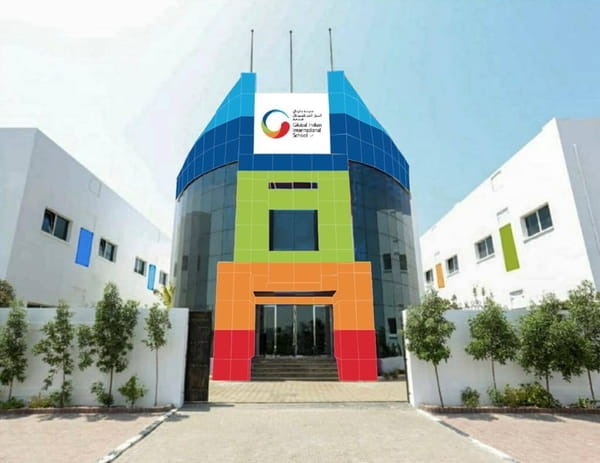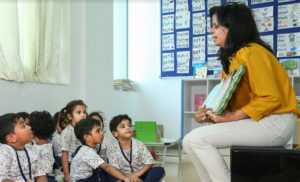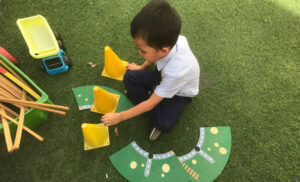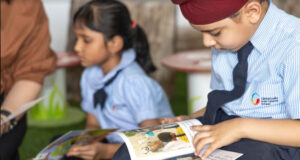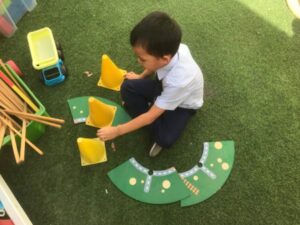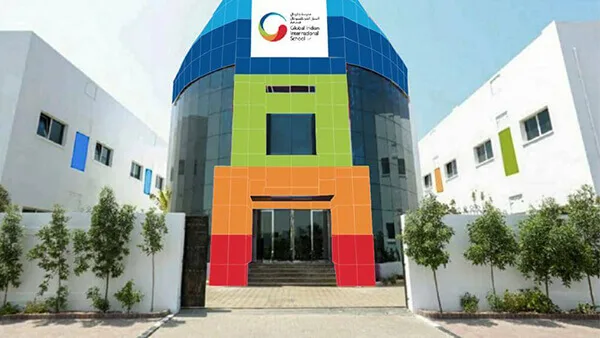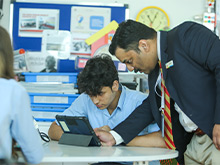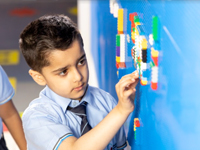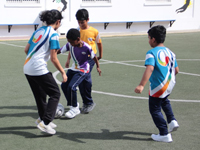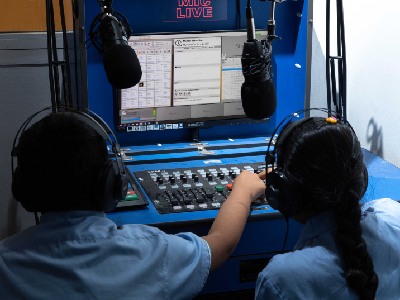Parents who wish to get their kids enrolled at a well-established CBSE school in Dubai often persuade their kids to acquire math and literacy skills from a very young age.
Well, of course, learning letters, numbers, and sounds are crucial to help the child develop and grow, and so is building a healthy imagination. It helps in enhancing the child’s learning potential.
From a very young age, humans start using their imagination to draw on prior experiences in life. For instance, a kid with excellent imagination will explore new ideas and learn through trial and error, thereby gaining problem-solving skills. Such kids know how to take calculated risks.
Are you looking for ways to develop your child’s imagination?
Listed below are some tips for encouraging imagination in kids.
1- Encourage creative play
Both creative play and imaginative tricks are crucial for a child’s development as they assist the child in growing socially, intellectually and emotionally.
Exposing the kids to creative activities allows them to express their feelings and thoughts.
Besides, mental growth in kids is only stimulated when they are provided opportunities to try new things that, in turn, foster problem-solving skills and thinking abilities.
2- Buy your kid studying at GIIS Dubai open-ended toys
It is crucial for kids to use their cognitive skills. And what is better than open-ended toys in doing so?
Toys like animal figurines, building blocks, etc., foster and improve imagination. These toys encourage kids to make their own decisions, thereby engaging their creative imaginations and thoughts.
Such role plays can help the kids explore the world around them and gain a wealth of knowledge.
3- Use arts and crafts to foster imagination
We often avoid providing kids with paint brushes and colours, fearing the mess they might create. But you must know that the mess is just a small part.
Instead, encourage your kid to play with paint, clay and beads whenever possible. Not only will they explore different mediums, but they will also gain a fantastic opportunity to express themselves while having fun.

Also, avoid getting logical. If your kid wants to paint the sky pink, let him or her do so. Allow your kid’s imagination to guide him or her.
Arts and crafts are crucial to enhance tactile ability in kids.
4- Read to your kid
Does your kid have a favourite storybook or two? Consider reading those books to him or her every day for 30 minutes. Pause in between every paragraph or after every story to ask your kid how he or she is imagining the story in his or her mind.
Most typically, kids come up with their own plot and character ideas. This showcases that your kid has a good imagination. Choosing to practise such sessions regularly, can assist your kid tap into his or her creative side.
Besides, kids tend to replicate everything their parents do. Your choice to read to them will instil an interest in reading books in them.
5- Plan a screen-free time
Kids born in this digital age are more inclined towards digital devices than physical activities.
And once they get older, their addiction to digital devices can cause a loss of social skills, behavioural problems and irregular sleep patterns.
We know that controlling electronic activities is quite challenging, but it is crucial for your kid’s social development.
Instead of stopping them from using electronic devices altogether, consider scheduling a screen-free time. This screen-free time can be used to go on walks, read books or get the kid involved in household chores like helping you lay out dishes, fold clothes, etc.
6- Encourage new experiences
There are many child-friendly activities that you and your kid can partake in. For instance, most cities have botanical gardens, zoos, aquariums, museums, etc. Visit those.
Such field trips can expose your kid to new experiences.
And as your kid gets older, change zoos and aquariums to visiting historical sites, live play, orchestra, etc.
7- Let the kids figure out things on their own
No matter how tempting it may be, it is crucial to avoid teaching kids how to do everything. Of course, as a parent, you know how to do things easily, promptly and in the right way; allowing kids to be on their own enables them to experiment and discover something new.
Whenever possible, let your kid try things on his or her own. For instance, choosing cutleries for dinner, ordering food of choice, picking school stationeries after school admission, etc.
This will help in developing his or her creativity, confidence, reasoning, self-regulation, problem-solving skills, motor skills and so on.
Don’t Miss Out: How can I get admission in Dubai schools?
To Conclude
While it is important to focus on nurturing creativity for child development, you must know that every kid is different. This means his or her ability to grasp things will vary, too.
Tap into your kid’s curiosity at his or her pace while you put the above-mentioned tips into action.
Frequently Asked Questions
1- What is The Importance Of Nurturing Creativity?
Creativity is one of the most important soft skills that help an individual in developing new ideas and solve problems innovatively.
Creativity is the reason why dance, art, film and music exist. A creative person knows exactly how to express him or herself, share ideas with other people and stand out from the crowd.
Creativity helps people survive even the toughest time.
2- Why is It Important To Encourage Children’s Creativity?
Even though creativity is crucial throughout life, a child might benefit immensely from a creative mind.
Given kids’ brains are still developing, encouraging creativity will allow them to develop into better individuals. They will have the best ideas for dealing even with the most complex situations in their lives. They will be in a better position to absorb new knowledge and information. Plus, creativity is important for success in future.
3- What Are Examples Of Creativity in Children?
Creativity is not just limited to arts, crafts and music. A child who has unusual responses to questions, displays a keen sense of humour and is unpredictable and non conforming in thinking creatively, too.
Oftentimes, a child that goes beyond the rules set in a classroom may seem irritating but may have the capability of making a difference in future with his or her creative problem-solving skills.
4- How Do You Define Creativity in Early Childhood?
During early childhood, creativity can be a child’s unique way of responding to everything he or she feels, hears, experiences or sees. These responses can be social, emotional, cultural, physical or a combination. For instance, younger children tend to have a nonverbal response to music. They sway to the beats of the music.
The individual response of a child to ideas, materials, and experiences paves a route to imagination and creativity.
And as the child develops, they start using their imagination and creativity to relate with other people, tell stories, stay grounded and enter imaginary worlds.
5- What are the characteristics of a creative child?
Some of the special aptitudes in children, such as a keen memory, the ability to develop many questions, artistic skills, advanced pre-reading and reading skills or other types of above-average abilities, are all characteristics of a creative child.
Parents of such gifted children must encourage their kids to build or expand their skills.
